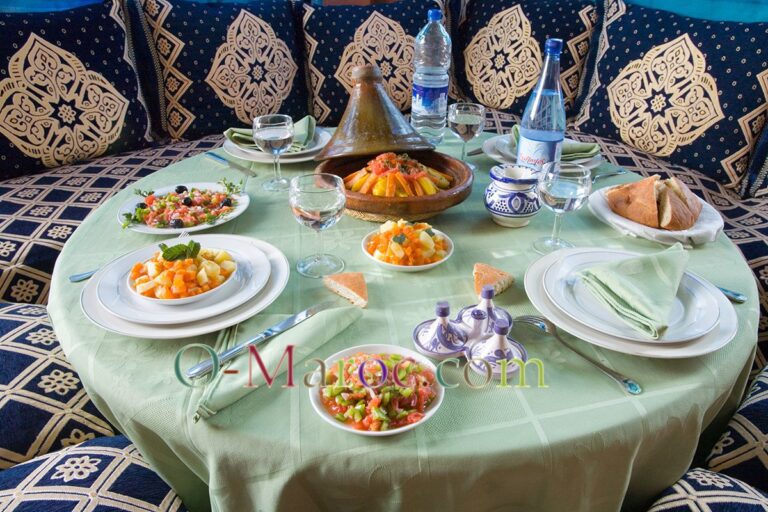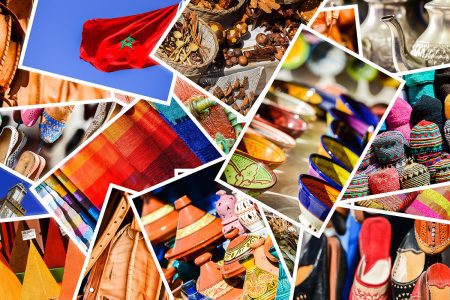Moroccan hospitality is legendary. Nothing symbolises it better than a shared meal, tajine and mint tea. However, beware of legends… as their name suggests, they are legends.
Sharing the food
When you go into a shop where the shopkeeper is drinking tea, if you come across people you know eating, you’ll be invited to share.
Don’t refuse, take ‘just a shwia (little bit)’. For a Moroccan, it is God who has put this food in your path.
By refusing it, you place yourself higher than God. But it’s perfectly possible to just dip your lips in it, if that’s all you want.
Meeting Moroccans at home
If you’re not travelling with a group, you’ll probably be invited to stay with a Moroccan family.
It is an honour to receive you, which means, on the other hand, that if you refuse, you may hurt the person who invited you. It’s up to you to find a very good reason. But don’t refuse, it would be a shame to let this opportunity pass you by…
The invitation may come very quickly, after a conversation, from a guide, taxi driver or shopkeeper. Don’t worry, it’s often sincere.
And if they’re interested, at worst you’ll be stuck for a few hours in someone’s home. But outside certain red-light districts, such as Casablanca or Tangiers, there’s no real risk. As for the rest, let your intelligence do the talking… there are nice people and not-so-nice people everywhere.
Gifts to bring along
Are you invited to a house?

Like everywhere else, people don’t come empty-handed. Flowers, but more often meat (to be prepared on skewers by the lady of the house), pastries or gifts for the children. Especially if you’re going to a modest family, think useful. Gifts of money are no problem, and neither is the offer to go shopping.
When you arrive, you’ll be ushered into the large Moroccan lounge, with sofas running along the wall and small tables that can be moved around the room.
Take off your shoes before walking on the rug!
Perhaps the women will be invited to join the women of the house, who often eat in a different room. But as a European woman, you don’t have to stay with them, and you’re perfectly welcome to join them in the men’s lounge. On the other hand, unless your host expressly suggests it, it would be inappropriate for the men to follow you.
You will immediately be offered a glass of tea, or several glasses of tea, with peanuts or dried fruit. Beware, it’s going to be a hearty meal!
The meal
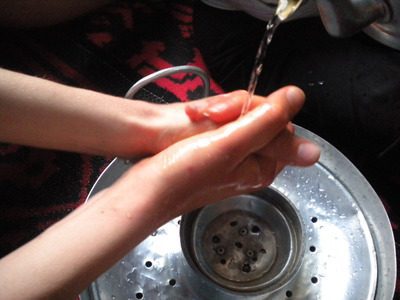
Then comes the time for ablutions before the meal (don’t forget that you eat with your right hand in the communal dish), either in a washbasin or, more pleasantly, in a container placed in front of you while your hands are sprayed with hot water.
The same utensils will be used again at the end of the meal, to wash your hands and mouth if you wish.
The meal will be plentiful, and your hosts will encourage you to enjoy it as much as possible.
It begins with an invocation to the grace of God, ‘Bismillah’. When you are completely full, you can say with a big smile ‘safi’ or ‘baraka’, which means ‘that’s enough’, without forgetting to add ‘Hamdullilah’ (thanks be to God). But it will be very late at night.
Depending on the means of your hosts, whether in a riad, on a farm or in a tent, we will gladly share with you everything we have, and even what we don’t have.
But you have to understand that this is also part of a system of long-term exchanges, which is normal in Moroccan society (‘I’m doing this for him because he’ll do it for me later, when I need it’).
As a foreigner, you are somewhat outside this system. You’ll often be asked for your address and telephone number, and if you give them, it’s understood that they can then be used if you come to Europe… or given to a friend who’s coming.
Be careful with your promises: a yes commits you. An Inch’Allah is a kind ‘neither yes nor no’, and understood as such.
Living with Moroccans: accommodation with local people.
On the other hand, this option is not widely available in Morocco.
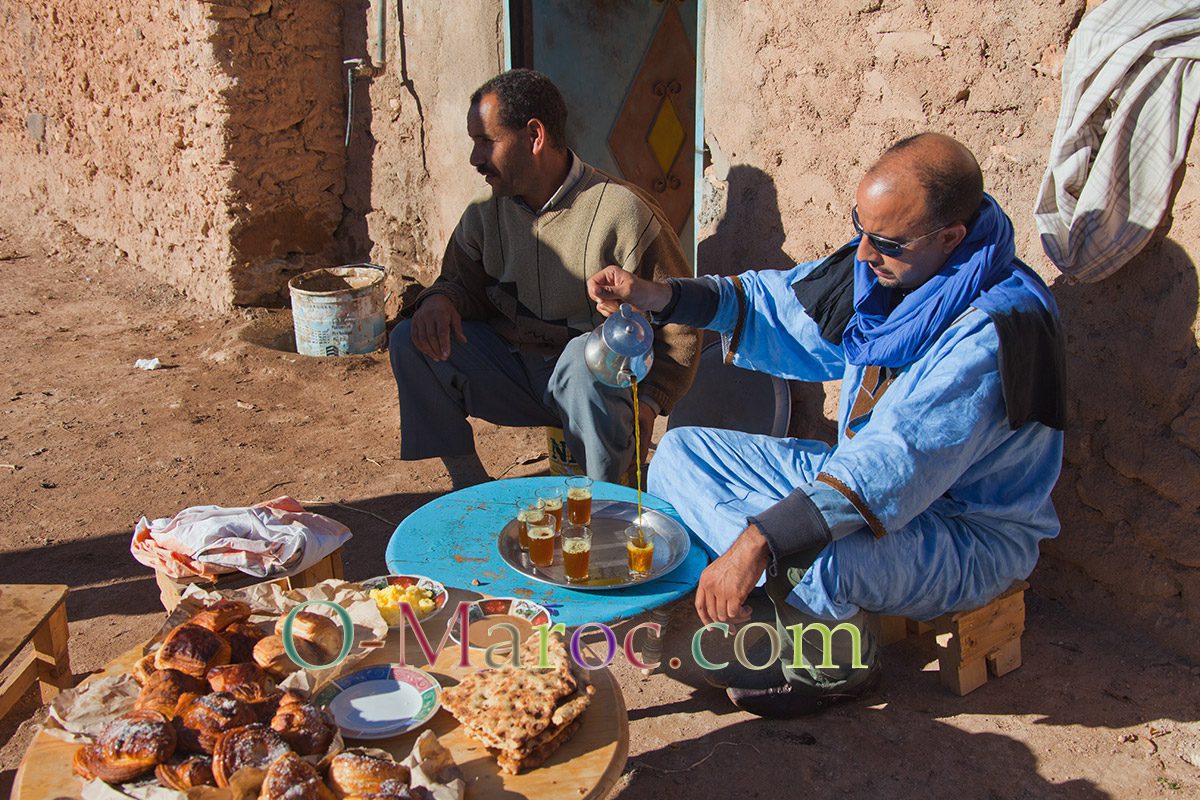
Apart from riads and guest houses, which are official tourist accommodation, there is no equivalent of our bed-and-breakfasts or our cafés-couettes, and the few formulas that do exist and are entitled ‘chez l’habitant’ in reality conceal professional accommodation.
The reason for this is simple: police controls are still very tight, and any Moroccan who hosts a foreigner must declare it to the police beforehand. Moroccans are therefore reluctant to enter this restrictive system.
If you make friends, things will be different. But in the meantime, it’s not really possible to find accommodation with local people ‘from afar’…
Living – really – as a guest in a Moroccan home
So, if you have Moroccan friends or in-laws, you will certainly be invited to their home.
How long can I stay?
It would be very rude to put an end to this invitation. They won’t say ‘come and spend the night at our house’, but ‘come and stay at our house’.
But everyone knows that this hospitality is not open-ended. And like many things in Morocco, there is a hadith that sets a time limit: three days, no more.
Of course, if you stay for four days, you won’t be thrown out, as hospitality dictates. But we could be in a lot of trouble because we had planned to do things. And we’ll do them… you’re no longer treated as a guest but as a member of the house, who doesn’t need to be looked after in particular and who has to contribute to the costs and daily chores.
Or you are explicitly told ‘come and spend your fortnight’s holiday with us in Marrakesh’.
The guest is a king
For a day or for much longer, you’ll be treated as well as possible.
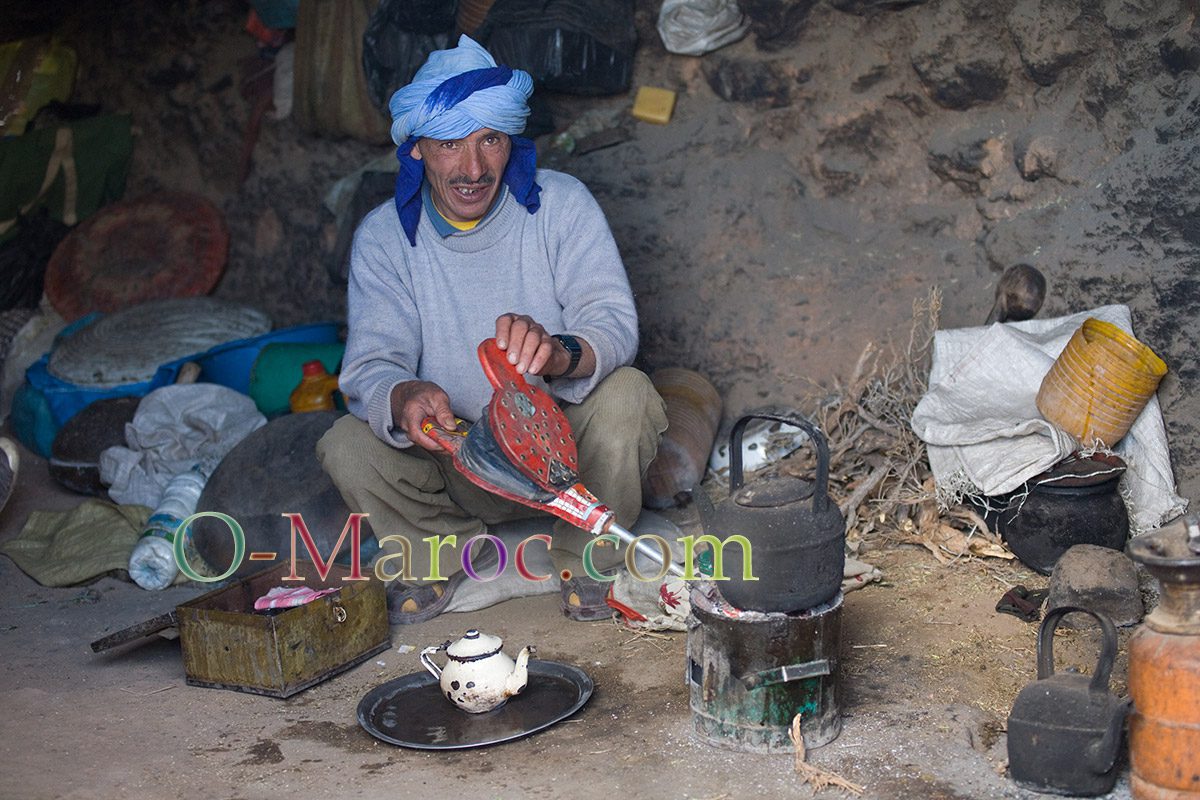
Don’t be ‘ashamed’, as the Moroccans say, and don’t hesitate to ask if you need anything.
Living in a Moroccan house on a daily basis can be a bit of a culture shock.
You may discover that the rhythm of life is set by prayer, and that the person praying can sit in the living room without the other people changing their occupation.
You may also discover a different rhythm, with children going to bed very late. Or a television in the background to which nobody pays any attention. If you’re a woman, you’ll discover Moroccan cuisine; if you’re a man, you’ll take part in long discussions about the future of the world over a cup of tea…
Finally, two stories of hospitality
Hospitality in the name of God
My husband and I were on a pleasure trip to discover Imilchil. We went off-piste, via . We’d underestimated the difficulty of the route, come across tourists in distress, and we arrived in Imilchil at two in the morning.
Everything was closed, caulked up, nothing and nobody… (it wasn’t Moussem time). We managed to find the hostel not far from the lake, but nobody opened.
Until my husband invoked hospitality in the name of God, for his wife.
The door opened. The hostel was run by a couple, the husband was away on business and the wife was scared. But she opened the door in the name of hospitality and not to leave another woman outside! And it was one of my best nights ever. And I woke up to a beautiful morning!
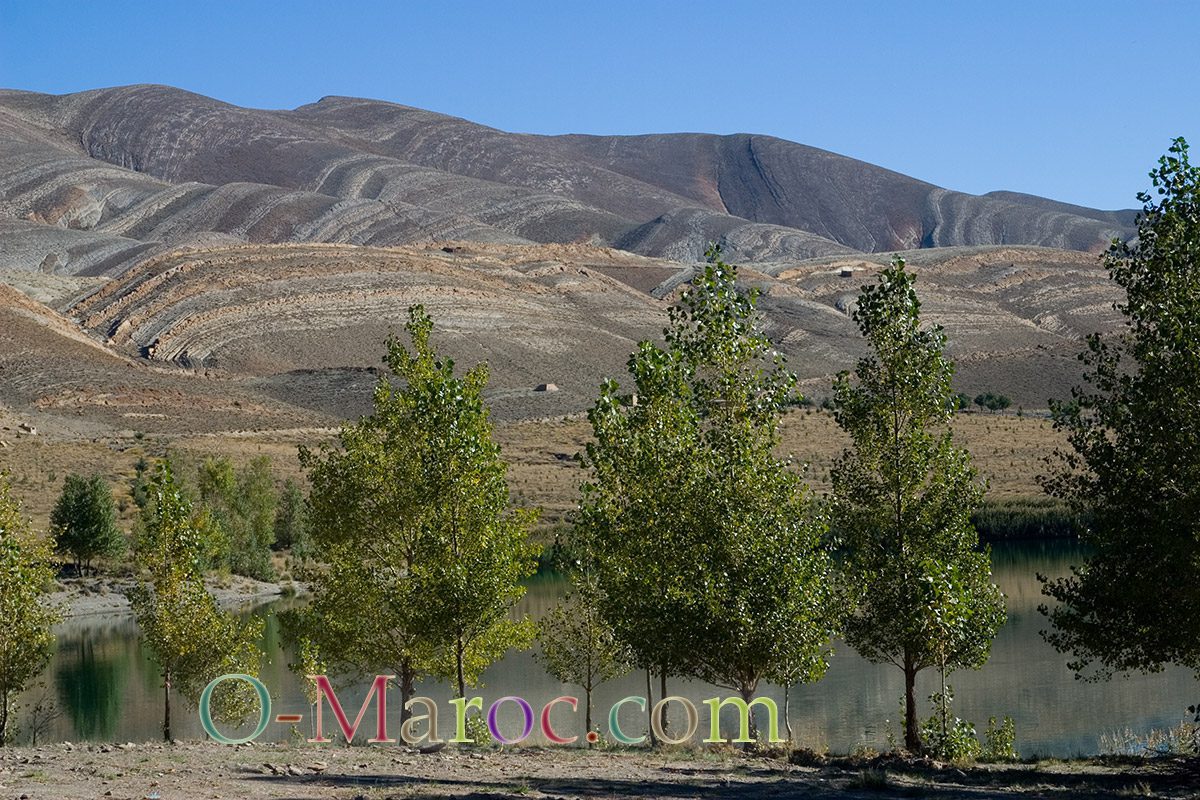
Aïcha always helping tourists, tourists always taking tea and giving presents
Earlier in the day, we had experienced the other side of the legend.
So the tourists who had delayed us were simply having trouble negotiating the narrow Jaffar trail. All they needed was a good guide.
We had barely begun to help them when we saw five men arrive, out of breath from all the running they had done, armed with shovels and other tools to ‘help out’. Followed by a woman, Aïcha, who took the young tourist by force (and tried to do the same with me), repeating that we had to come downstairs, the tourists always came downstairs while the men repaired, and the tourists were always kind to Aïcha.
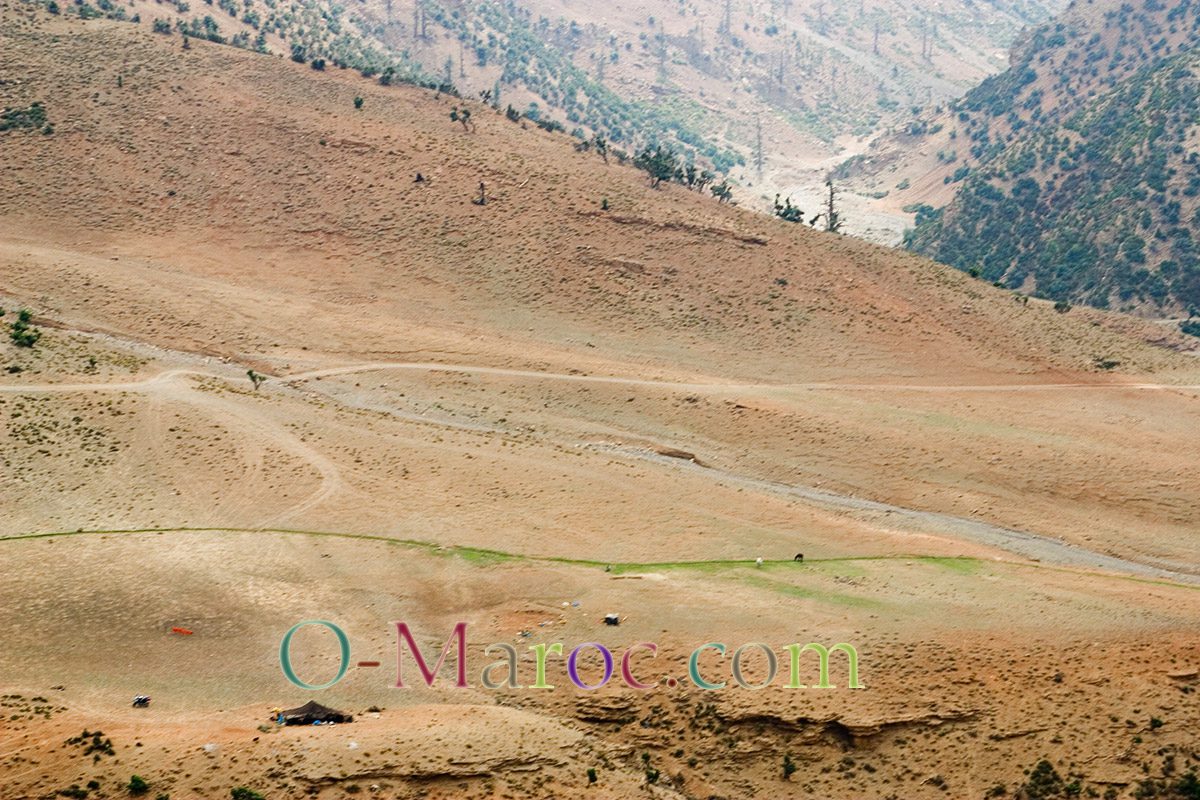
My husband ordered him in Berber to let go of my arm, I wasn’t going anywhere without him. And he put an end to the explanations of the men who were trying to convince the tourists that there was something wrong with the engine, the tyres, the position of the satellite, like a bad mechanic trying to overcharge.
Their tent was strategically positioned so that they could show their hospitality as often as possible!
Much more harassment, no more real risk
Since this post was written, many travellers have been complaining on the forums about harassment that makes them feel uncomfortable.
 A typo or syntax error? You can select the text and hit Ctrl+Enter to send us a message. Thank you! If this post interested you, maybe you can also leave a comment. We'd love to exchange with you !
A typo or syntax error? You can select the text and hit Ctrl+Enter to send us a message. Thank you! If this post interested you, maybe you can also leave a comment. We'd love to exchange with you !

